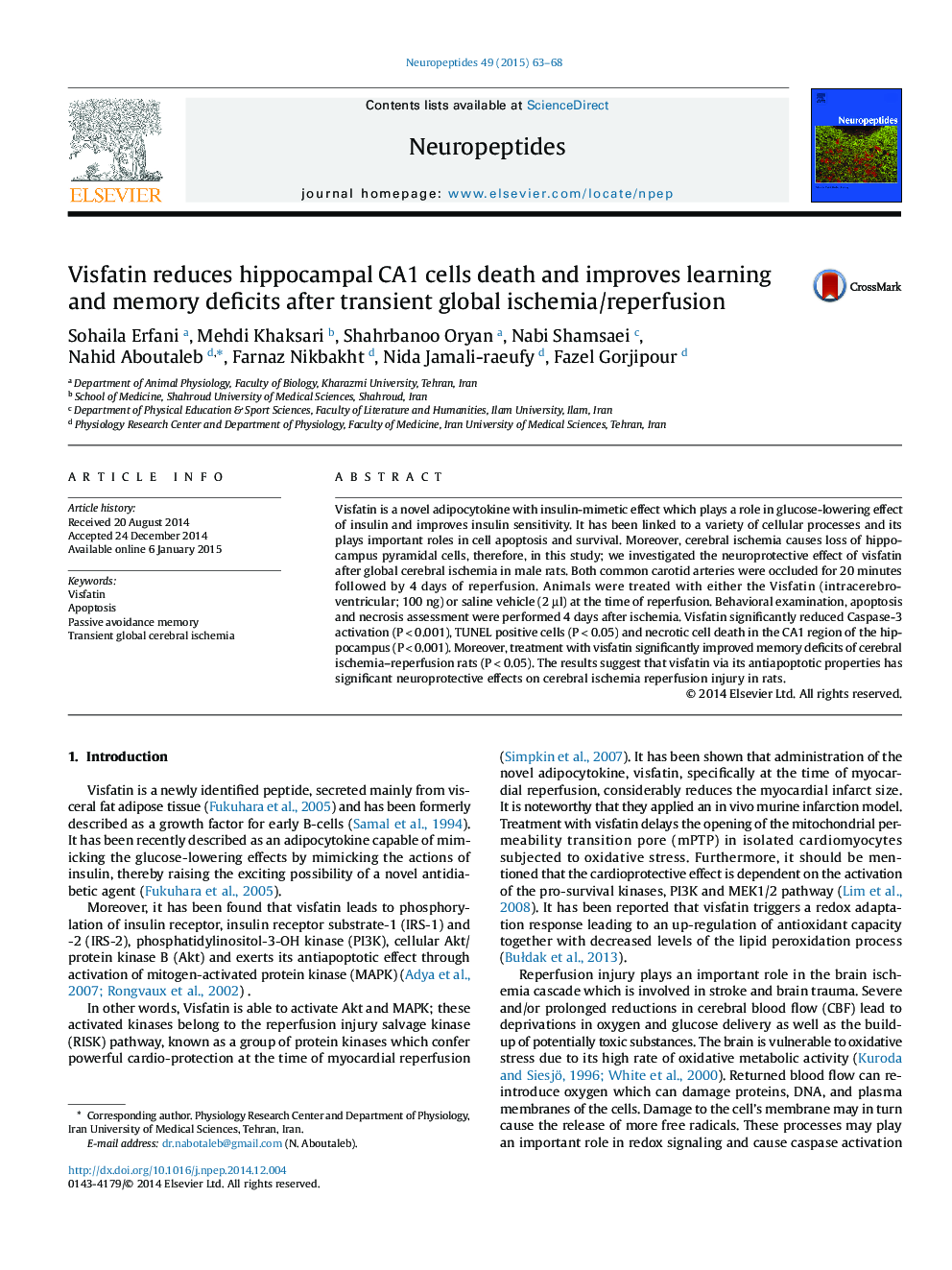| Article ID | Journal | Published Year | Pages | File Type |
|---|---|---|---|---|
| 2808027 | Neuropeptides | 2015 | 6 Pages |
•Visfatin treatment found for the first time reduces hippocampus necrosis after cerebral ischemia.•Visfatin treatment reduced caspase-3 activation and TUNEL positive cells.•In addition visfatin can improve passive avoidance memory of ischemia rats.
Visfatin is a novel adipocytokine with insulin-mimetic effect which plays a role in glucose-lowering effect of insulin and improves insulin sensitivity. It has been linked to a variety of cellular processes and its plays important roles in cell apoptosis and survival. Moreover, cerebral ischemia causes loss of hippocampus pyramidal cells, therefore, in this study; we investigated the neuroprotective effect of visfatin after global cerebral ischemia in male rats. Both common carotid arteries were occluded for 20 minutes followed by 4 days of reperfusion. Animals were treated with either the Visfatin (intracerebro-ventricular; 100 ng) or saline vehicle (2 µl) at the time of reperfusion. Behavioral examination, apoptosis and necrosis assessment were performed 4 days after ischemia. Visfatin significantly reduced Caspase-3 activation (P < 0.001), TUNEL positive cells (P < 0.05) and necrotic cell death in the CA1 region of the hippocampus (P < 0.001). Moreover, treatment with visfatin significantly improved memory deficits of cerebral ischemia–reperfusion rats (P < 0.05). The results suggest that visfatin via its antiapoptotic properties has significant neuroprotective effects on cerebral ischemia reperfusion injury in rats.
Graphical AbstractFigure optionsDownload full-size imageDownload high-quality image (79 K)Download as PowerPoint slide
